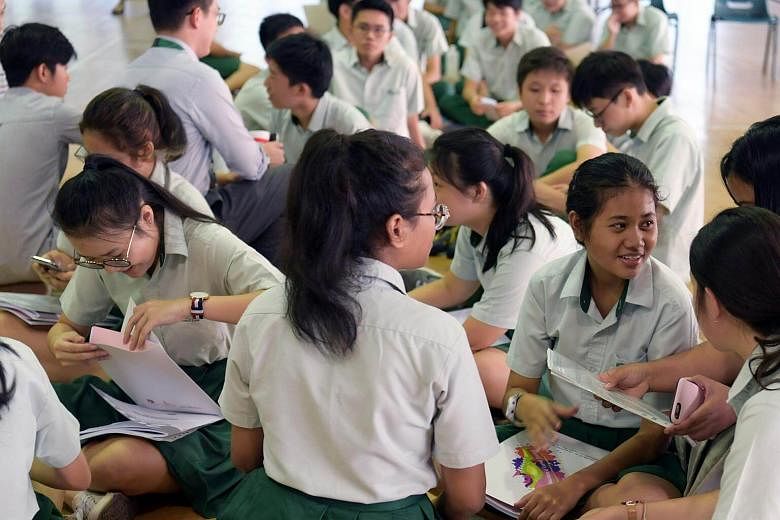I believe many Singaporean parents would have cheered Education Minister Ong Ye Kung's announcement that streaming is going to be replaced (Subject-based banding to replace streaming in schools, March 6).
The reasons given were certainly logical - to reduce social stigma, avoid pigeonholing students into self-fulfilling prophecies and maximise the potential of every child, taking into consideration different learning and development speeds.
Yet, there is a larger social objective that I believe this policy change can achieve.
Given the social stratification that exists in many aspects of life in Singapore, the education system, which prides itself on imparting knowledge and instilling core values in students, is a good place to reduce the social divide.
Mr Ong's analogy of fishes swimming in one broad river instead of three separate streams is apt.
By putting students of different abilities together, the education system will enable them to learn to be less self-centred, more gracious, and show compassion towards fellow students.
Instead of focusing on one-upping, students can now help one another to improve.
This prepares students for the workplace in the real world, where teamwork is needed to harness the best of every human resource.
One might even call it one small step for schools, one giant leap for society.
Alvin Hang Woei Yau

